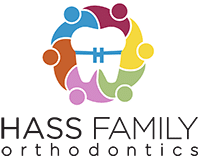TMJ disorder, also known as TMD or TMJD, is a condition affecting the temporomandibular joint—the hinge connecting your jaw to your skull. While this joint may be small, it plays a significant role in daily activities like eating, speaking, and yawning. When it becomes dysfunctional, the resulting pain can disrupt your quality of life. Understanding the symptoms of TMJ disorder can help you identify the condition early and seek appropriate treatment.
8 Symptoms of TMJ Disorder You Shouldn’t Ignore
Recognizing TMJ symptoms is the first step toward relief. While some signs are obvious, others can be mistaken for unrelated conditions, making diagnosis more complex.
Changes in Teeth
Teeth grinding and clenching—common contributors to TMJ pain—can wear down teeth, causing chips, cracks, or misalignment. If your upper and lower teeth no longer fit together properly, it may indicate severe TMJ dysfunction.
Headaches
TMJ-related headaches often feel like they originate behind the eyes and are frequently mistaken for migraines. These headaches may come and go initially but can become chronic as the condition worsens.
Jaw Pain or Discomfort
TMJ-related pain often radiates from the temples down to the sides of the jaw. Some patients describe the sensation as their jaw feeling “out of alignment” or stiff.
Facial Pain
TMJ inflammation can cause widespread pain across the cheeks, under the eyes, or even the forehead. This discomfort is often linked to muscle tension triggered by the joint's dysfunction.
Neck and Shoulder Pain
The muscle tension resulting from TMJ disorder can extend beyond the jaw, leading to neck and shoulder discomfort. Poor posture or stress-related clenching can exacerbate the pain.
Earaches and Fullness
Because the temporomandibular joint is located near the ears, inflammation can cause earaches, a feeling of fullness, or even dizziness. Many people initially think these symptoms stem from ear infections.
Clicking and Popping Sounds
If your jaw clicks or pops when you yawn, chew, or speak, this is a clear indicator of TMJ disorder. Unlike other joints in the body, the TMJ should move smoothly without making noise.
Locked Jaw
Another hallmark sign of TMJ dysfunction is a jaw that becomes stuck in an open or closed position. Frequent jaw locking should be addressed promptly to prevent further complications.
Frequently Asked Questions about TMJ Disorder
What Is TMJ Disorder?
TMJ disorder arises when the temporomandibular joint becomes inflamed or misaligned, leading to pain and difficulty in jaw movement. It is estimated that around 10 million Americans suffer from TMJ-related issues. This joint's dysfunction can create a ripple effect, causing pain not only in the jaw but throughout the face, neck, and shoulders.
What Causes TMJ Disorder?
Various factors can cause TMJ problems. Determining the potential root cause can help in finding an effective treatment. Some common causes include:
- Teeth Grinding and Clenching: These habits are often stress-related and can place significant pressure on the TMJ.
- Orthodontic Issues: Crooked teeth or other orthodontic problems may can strain the joint.
- Stress and Anxiety: Stress commonly causes muscle tension and clenching, both of which aggravate TMJ symptoms.
- Arthritis: Degenerative joint conditions can contribute to TMJ pain.
- Erosion of the Joint: Over time, wear and tear on the joint can lead to dysfunction.
- Facial Trauma: Injuries to the jaw or face can disrupt the alignment of the temporomandibular joint.
Are You Experiencing Any of These Symptoms? Book an Appointment with Hass Family Orthodontics
Are you struggling with TMJ pain or recognizing any of the symptoms mentioned above? At Hass Family Orthodontics, our compassionate staff wants to help you find relief and restore your quality of life. Together, we can create a TMJ treatment plan tailored to your needs, helping you feel like yourself again.
Don’t wait to take the first step toward relief—call us today at 828-464-5300 to schedule an appointment for a consultation at Hass Family Orthodontics and find out which treatment options are best for your TMJ symptoms.

